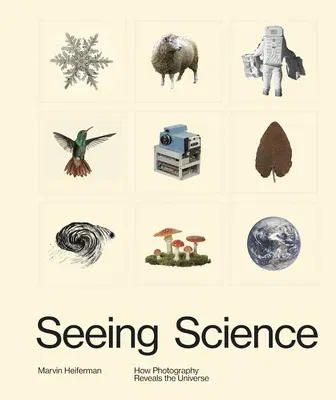Seeing Science offers an insightful and reader-friendly collection of
essays and pictures about photography's role in visualizing science and
building human knowledge--from micro to macro levels and everything in
between.
Photography and science have long been intertwined, helping to shape the
way we look at the world. Scientists use photography as a way to gather
information, explore, and learn, but just as important, photography is
also used to promote scientific advances and has long served as an
interface between the sciences and the public. Our understanding of
outer space depends on images sent to Earth from the Hubble Space
Telescope, just as our understanding of our own bodies depends on
X-rays. Images make visible what lies beyond human perception.
Science is less an edifice of facts than a process of discovery and
inquiry. In this way, it is not dissimilar to art; artists have engaged
with some of the same scientific principles, using photography to
imagine the world differently and present us with new experiences and
ways of seeing. This volume presents both perspectives exploring how
science is made perceptible, featuring over three hundred images and
sixty short texts. Together they engage readers in a timely exploration
of the extent to which our knowledge is formed and transformed through
our interactions with photographic imagery.

